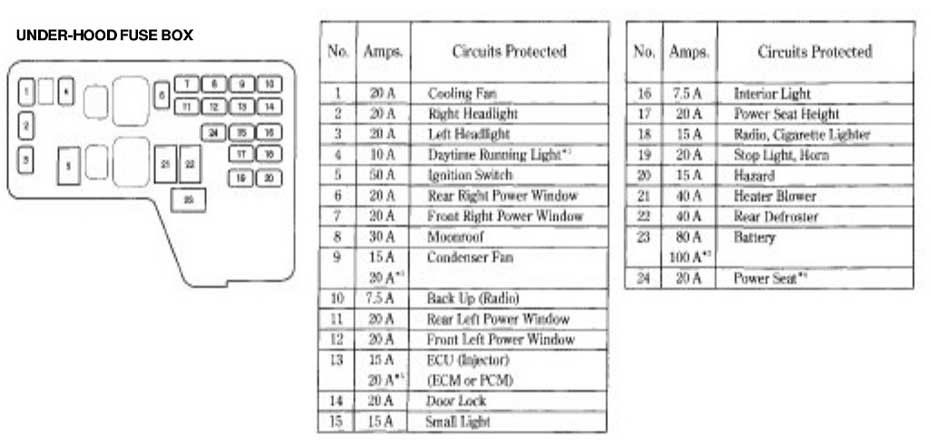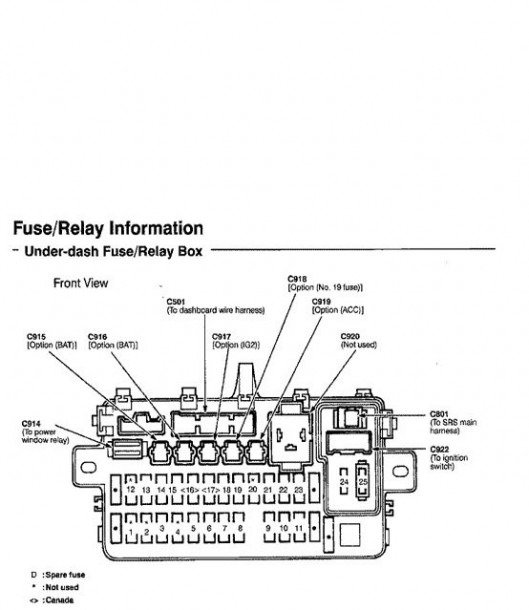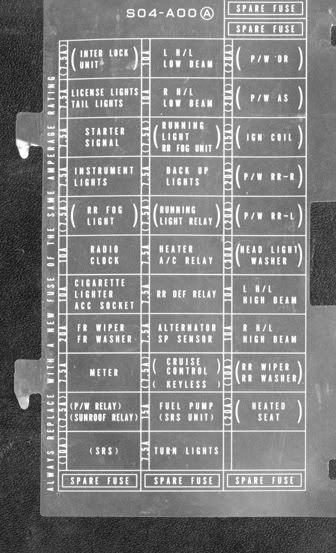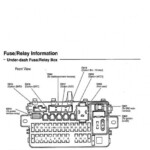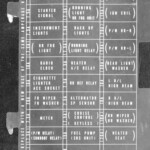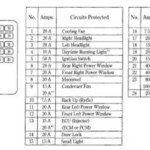00 Honda Civic Fuse Box Diagram – Diagrams of fuseboxes are crucial for understanding and troubleshooting electrical systems at your house or vehicle. They provide an illustration of the circuit protection circuits and their functions. This guide will help you in understanding fuse box diagrams, including symbols and common troubleshooting steps.
Types of Fuse Box Diagrams
A fusebox diagram is an essential tool for electrical work and household repairs.
Diagrams for fuse boxes can be found in many locations, including residential buildings and automobiles. Two of the most commonly utilized types will be covered in this article:
A. Automotive Fuse Box Diagrams These schematics are specific to cars and depict the circuits and fuses used to operate elements such as headlights and engine control modules as well as audio systems. They are typically found in the owner’s manual or on a label located inside the fuse box.
C. Home Fusebox Diagrams: Also known as electrical panel diagrams or home fuse box schematics they show how circuit breakers and fuses are organized within the electrical system. The schematics are a source of documents about their home.
Understanding Fuse Box Diagram Symbols
Diagrams of fuseboxes represent the components within an electrical system. These icons are commonly employed:
- Fuses Small rectangles that have numbers inside them that indicate the fuse’s amperage rating
- Circuit Breakers is a symbol that appears like a switch, and is a symbol for a resettable safety device
- Ground: This looks like an inverted T with an horizontal line which represents the electrical ground connection
Common Fuse Box Problems
If you’re faced with electrical issues These steps can help to pinpoint and resolve the issue:
- First, recognize the Problem
First, identify the electrical component that isn’t functioning correctly in your vehicle or at home. It could be your lighting, outlet, appliance, or lighting source at your home; or your vehicle’s radio or air cooling.
- Step 2. Find the correct fuse
Find the circuit breaker or fuse connected to the malfunctioning part using the diagram of the fuse box. These components will be identified by a description of the symbol or a number.
- Step 3. Confirm and Replace the Fusible
You should carefully take the fuse off or disconnect the circuit breaker and examine the fuse for evidence of damage. Replace the fuse with one that has the same amperage or reset your circuit breaker if needed. It is essential to confirm the operation of this device.
Conclusion
The first step to troubleshooting electrical problems at home or in vehicles is to understand fuse box diagrams. By tracking the steps summarized in this manner, you can quickly and effectively identify and repair the most common issues, making sure your electrical systems remain functional and safe.
